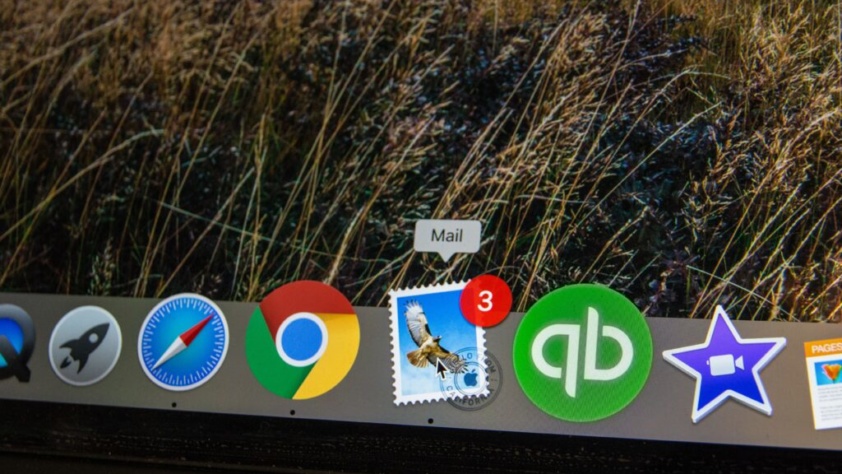As of last Thursday, Google began rolling out their new helpful content algorithm update, which aims to reward people-first content and decrease the value of the content written purely for search engines.
For those who want to learn a little more about this change, today I will break down Google’s advice and provide additional supportive content for further guidance.
Keep reading to learn the seven things you need to know to ensure you’re creating the people-first content needed to boost yourself to the top of the SERPs.
Keep Your Main Topic As Your Focus, And Don’t Stray Too Far Away From It.
“Do you have an existing or intended audience for your business or site that would find the content useful if they came directly to you?”
From this snippet, I understand that Google is telling people to remain within their sector and area(s) of expertise.
When your creating content for search engines you sometimes go down the path of publishing articles on topics outside of your niche.
Let’s say for example you are a fashion retailer and see an opportunity to capitalise on a high-volume keyword based on a global event, such as the upcoming World Cup.
Whilst this article may bring in some traction, your existing audience is going to be interested in the trends for the A/W season, not about how many goals England score in the final (hopefully!). This type of information could now just be seen as jargon anywhere that isn’t a news outlet or sporting site.
You ideally want to be asking yourself the following related questions:
- Is the content you’re writing primarily to attract people in search engines, rather than being made for humans?
- Are you writing about things that are simply trending, or seem to be, & not because you’d write about them otherwise to engage your existing audience?
- Are you entering a niche topic area without any prior knowledge, but because you think it’d get search traffic?
Showcase Your First-Hand Experience
“Does your content clearly demonstrate first-hand expertise and a depth of knowledge (for example, expertise that comes from having actually used a product or service, or visiting a place)?”
Here, Google is advising you to not write about something you haven’t personally experienced.
Linking to the first point, when creating content for search engines this can involve writing about products and services you may not, or have used first-hand. These articles most often include affiliate links which help the author earn a commission.
Naturally, with no experience of what you’re writing about, the content perhaps won’t be as helpful as it could be compared to someone who has.
On the other hand, if you do have experience with the product, service, or for example, the location you’re focusing on, you want to make it clear by including original photos or helpful insights.
You additionally, following Google’s guidance want to ask yourself the following question: Are you mainly summarizing what others have to say without adding much value?
Avoid Combining Multiple Topics Into One Site
“Does your site have a primary purpose or focus?”
With this piece of guidance, Google is advising that websites should have a niche.
After all, a single website can’t be everything that all people need.
Without a niche, not only will your site be unhelpful to visitors, but it will also confuse search engines when they trail and try to understand your site.
Focus and build around one subject area. And if you really want to, you can build multiple websites should you desire to produce content based on different topics.
You want to also ask: Are you producing lots of content on different topics in hopes that some of it might perform well in search results?
Work To Provide Sufficient Answer To Users’ Questions
“After reading your content, will someone leave feeling they’ve learned enough about a topic to help achieve their goal?”
Upon reflecting on this advice, Google suggests the content is helpful when it teaches something or helps someone to accomplish a task.
When creating content for search engines it normally includes writing a lot of content without any actual value.
But when writing for people, you want to help them answer a question or resolve a concern which has led them to land on your site.
Based on guidance, you want to ask yourself:
- Does my content leave readers feeling like they need to search again to get better information from other sources?
- Am I writing to a particular word count because I’ve heard or read that Google has a preferred word count? (No, it doesn’t)
Don’t Overlook The Overall Reader Experience
“Will someone reading your content leave feeling like they’ve had a satisfying experience?”
Here you want to think about the overall experience you’re providing to someone reading a piece of content.
It’s easy to meet the above expectations and still not provide a user with a satisfying experience.
For example, imagine reading a product review based on first-hand experience that doesn’t feature photos or videos.
Whilst users may appreciate and learn from the textual content, a visual demonstration of the product would round off the experience completely. You want to satisfy your searcher’s curiosity and needs, not leave them looking for more.
Don’t Attempt To Answer A Question That Has No Confirmed Answer
“Does your content promise to answer a question that actually has no answer, such as suggesting there’s a release date for a product, movie, or TV show when one isn’t confirmed?”
With this piece of advice, Google is recommending websites go against making claims that aren’t real or don’t have the facts to be used as a backup.
You want to make the reader aware if you’re writing about something that is just based on a rumour or has an inconclusive answer.
Although this helps you to comply with the helpful content update, this guidance should always be considered as it helps you to establish and maintain trust with your readers.
Ensure You Follow Google’s Guidelines For Upcoming Major Updates
“Are you keeping in mind our guidance for core updates and for product reviews?”
It goes without saying, that guidance with regards to core updates and the product review update also applies here.
If you’re already following Google’s additional update advice, I expect your chances of seeking benefits from the helpful content update are already high.
In Summary
Google’s helpful content update will continue to roll out until next Thursday and I advise it’s best to wait until the update is complete before you assess the impact.
For now, the update affects only English searches worldwide and will break out into other languages in the future.
Finally,this won’t be the only helpful content update that Google releases. The below states that they will continue to refine their efforts to detect content that’s unhelpful:
“Over the coming months, we will also continue refining how the classifier detects unhelpful content and launch further efforts to better reward people-first content.”
If you’d like some support with your website content, or SEO practices, contact me today.
Thanks for reading,
Myk Baxter, eCommerce Consultant
The post An Insight Into: The New Google Helpful Content Update appeared first on eCommerce Expert.





